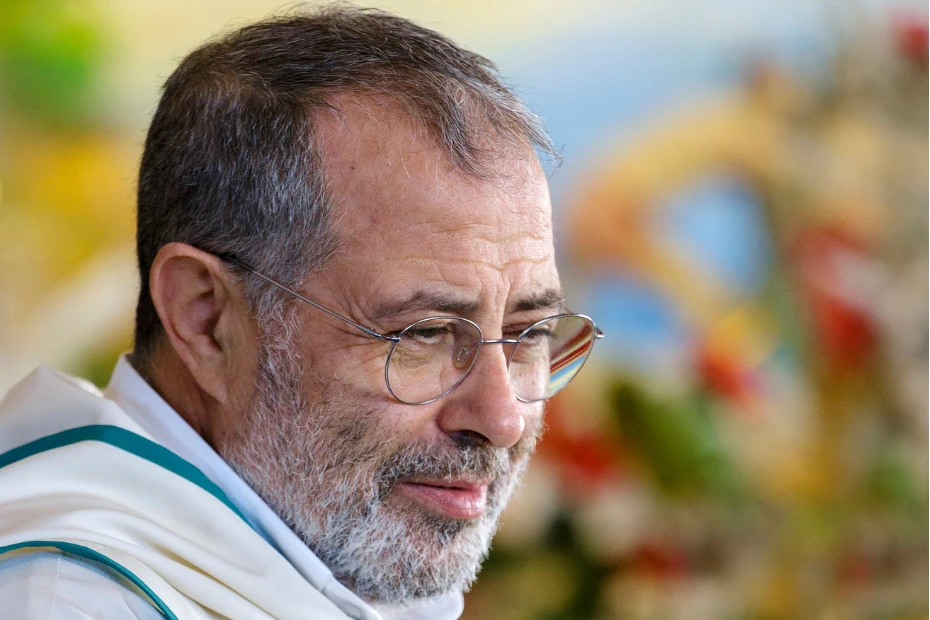We publish an excerpt from the article that appeared in LA STAMPA of 04.06.2006 regirating Fra Elia’ mission to Piani d’Imperia.
The eyes of the faithful spy his hands, the palms interrupted by a white bandage. But he almost hides them, or joins them in the collected gesture of prayer. He withdraws, not wanting to be touched, and only when he “feels” the need of a hurting brother does he offer his wounded hand to give a caress, a squeeze on the shoulder, a light touch on the head. “It was as if a wave of peace went through my body,” says Francis, slumped in a wheelchair from a bone cancer that destroyed his future, seven years ago, when he was 33. His faith has already taken him to Lourdes and now to the Piani di Imperia, to the shrine of Our Lady of the Assumption, a stopover of hope between a follow-up visit to Turin and his home in Siena. Here, in the small 18th-century church rebuilt on the ancient 1100s parish church, hope has the simple features of Fra Elia, Elia Cataldo, a little man dressed in a white habit striped with green, a friar who started the Fraternita Fra Elia Apostoli di Dio and preaches and heals, they say, like a new Padre Pio. Four thousand have come, two thousand yesterday and two thousand today, to see him, hear him, meet him up close.
Many believers were in Imperia as early as Friday to secure a private meeting and win the reservation number: white tickets for the disabled, blue for the elderly and green for everyone else. But by eight o’clock yesterday morning they were sold out, and in the afternoon distribution lasted ten minutes. A crowd blocked the small hamlet, besieging the sanctuary, contained by traffic police. “Fra Elia is tired, he can’t receive anymore”: the announcement is a cold shower mitigated only by the promise: “In church he will bless everyone, passing through the pews.” “Don’t look at me, don’t come after me, go to the church to pray to the Lord,” says Fra Elia as he leaves the rooms they have reserved for him. He speaks simply, but he gets to the heart. Even when he rebukes, even when his voice rises imperiously. “Go out. If you are not interested, come out and make comments outside.”
A cell phone rings and thunders, “This is not a square. God does not speak to us by phone, but directly to the heart.” If we are sick, we should not isolate ourselves, we should not penalize ourselves. If doctors give the calendar, the deadlines, three months, it doesn’t matter. We look for strength within ourselves, we smile at our children, at our friends. Let’s go out, let’s go to church, let’s pray.” “Let us offer to the Lord our saddlebag full of sorrow and hope.” It gets to the heart when he admonishes, “Spouses, talk among yourselves. In dialogue lies reconciliation. Wives, do not think only of the children, do not be in love with them. First there is the husband, and first there is the wife. Children come from the juice of love. Hold the reins tightly in their education, because if they respond to you badly, if they come to raise their hands, it is not their fault.” And he invites the faithful in difficulty to trust their pastor. “Only he can help you. Woe to magicians and charlatans: “No one can tell you the future, you build the future yourself.”
